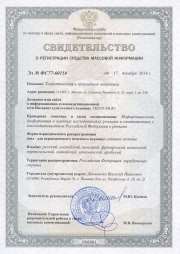|
ГЛАВНАЯ
> Вернуться к содержанию
Theoretical and Applied Economics
Правильная ссылка на статью:
Andreeva E.Y., Kleshnina M.O.
BREXIT in 2021
// Теоретическая и прикладная экономика.
2022. № 3.
С. 55-59.
DOI: 10.25136/2409-8647.2022.3.36958 EDN: JWELCW URL: https://nbpublish.com/library_read_article.php?id=36958
BREXIT in 2021 /
Выход Великобритании из Евросоюза: перспектива 2021 года
Андреева Екатерина Юрьевна
ORCID: 0000-0001-9953-4958
кандидат филологических наук
преподаватель, Департамент иностранных языков и межкультурной коммуникации Факультета международных экономических отношений, Финансовый университет при Правительстве Российской Федерации
125993, Россия, г. Москва, Ленинградский проспект, 49
Andreeva Ekaterina Yurievna
PhD in Philology
Lecturer, Department of Foreign Languages and Intercultural Communication, Faculty of International Economic Relations, Financial University under the Government of the Russian Federation
125993, Russia, g. Moscow, Leningradskii prospekt, 49

|
KATERINA88557@yandex.ru
|
|
 |
Другие публикации этого автора
|
|
|
Клешнина Мария Олеговна
студент, Факультет международных экономических отношений, Финансовый университет при Правительстве Российской Федерации;
student, Faculty of International Economic Relations, Financial University under the Government of the Russian Federation
125993, Россия, г. Москва, ул. Ленинградский пр-Т, 49
Kleshnina Mariya Olegovna
125993, Russia, Moscow, Leningradsky ave., 49

|
mrkleshnina@ya.ru
|
|
 |
|
DOI: 10.25136/2409-8647.2022.3.36958
EDN: JWELCW
Дата направления статьи в редакцию:
25-11-2021
Дата публикации:
08-10-2022
Аннотация:
Выход Великобритании из Евросоюза в 2020 году, так же, как и референдум 2016 года, оказал существенное влияние на функционирование многих экономических механизмов и даже на повседневную жизнь людей в Евросоюзе и Соединённом Королевстве. Ужесточённые рамки работы после пандемии Covid-19 в 2020 году только усугубили положение дел многих предприятий. Потребители столкнулись с большими налогами на импортируемые товары и услуги, также с ограничениями в передвижении между странами. Таким образом, предмет исследования в рамках настоящей статьи - различные аспекты торговых отношений Англии с европейскими странами. Новизна исследования заключается в том, что в данной работе представлен подробный анализ последствий Брексита для разных сторон переговоров, а также положение дел на 2021 год. Как известно, ситуация ещё больше усложнилась с приходом второй волны пандемии Covid-19. В последние годы подойти к разумному выходу из данного кризиса становится всё сложнее: экономику Великобритании потрясает нехватка медицинского оборудования, госпиталей и средств на сохранение предприятий от COVID-19, в то время как введение новых пошлин при торговле с Евросоюзом усложняется ввиду Брексита.
Ключевые слова:
Брексит, Евросоюз, Британия, пандемия Covid-19, торговое соглашение, население, экономические последствия, кризис, импорт, экспорт
Abstract: The UK's withdrawal from the European Union in 2020, as well as the 2016 referendum, had a significant impact on the functioning of many economic mechanisms and even on the lives of people in the European Union and the United Kingdom. The tightened scope of work after the 2020 pandemic has only worsened the state of many enterprises. Consumers faced heavy taxes on imported goods and services, as well as restrictions on movement between countries. The article presents a detailed analysis of the consequences of Brexit for different parties of the negotiations, as well as illuminates the situation in 2021. As you know, everything has become even more complicated with the pandemic. In recent years, it has become increasingly difficult to reach a reasonable compromise on how to get out of this crisis: the UK economy is shaken by shortages of medical equipment, hospitals, and resources to save enterprises from COVID-19, while the introduction of new taxes on trade with the European Union is becoming more complicated due to Brexit.
Keywords: Brexit, European Union, Britain, COVID-19 pandemic, trade agreement, population, economic consequences, crisis, import, export
Introduction
The pandemic has outranked Brexit as the dominant concern among the population of Great Britain [Sampson, 2020]. And in the future, Brexit supporters are expected to have negative economic consequences not on leaving the EU, but on the pandemic. The rights of citizens of both sides are also protected despite Brexit: EU citizens living in the UK and the British who live in the EU are allowed to continue to live and work there. But the withdrawal will probably still have negative consequences for trade relations and economy, which should be prepared in advance.
Even before the crisis – since the referendum in 2016 – the United Kingdom lost importance for some European countries as a sales market: for instance, German exports fell from 89 billion euros (2015) to 79 billion euros (2019) [9]. The pandemic crisis intensified this trend, and the global economy has been recovering slowly since then. Although some industries such as food and pharmacy were hardly affected, the other ones – especially Covid-sensitive sectors such as tourism and leisure – were severely damaged [10]. This also applies to the economy of Great Britain, which lost part of its means of exerting pressure in the withdrawal negotiations.
Today Great Britain desperately needs a domestic trade agreement with the EU [8]. On both sides, however, there is an interest in reaching a compromise quickly to avoid bureaucracy and minimize negative consequences of Brexit. Either there is a deal or not, there will be a severe impact on British economy and trade relations with the EU.
Materials and Methods
The research methods of the present paper imply the collection, analysis and systematization of data from relevant sources of information in order to study the opinion of the world political community and the economies of the UK and the EU on Brexit.
Results and discussion
Changes for the EU
Due to Brexit, the EU suddenly lost 66 million citizens. But what is even more important is the impact on trade relations [2]. Both the UK and the EU were anxious to represent their interests – making the negotiations on exit conditions so tough.
Apart from losing the United Kingdom's contribution to the EU budget, there are other disadvantages for the EU and its member states, as leaving the internal market will lead to trade barriers [1]. If Great Britain is no longer bound by European environmental and consumer protection standards, new trading conditions must apply – depending on the outcome as a privileged partner, or like those to a third country.
The following example shows why Brexit will have negative consequences for all sides. One industry in the that was surprisingly important is fishing. Although it represents only 0.1 of economic output, the EU fisheries policy was considered a symbol of unwanted intervention by the EU member states for advocates of the withdrawal.
With no foreign ships in British waters – as desired by the United Kingdom – more space would remain for domestic fishermen. Were the negotiations failed, Britain would be able to expect more yield in fisheries. However, it would no longer be able to export it to the EU as easily as they used to because of "bureaucratic system" involved in the exporting process [7]. This development would of course also be detrimental to European fishing companies: fishing fleets from France and the Netherlands would not be allowed to fish in British waters as before, which would probably lead to some bankruptcies.
It remains to be seen exactly what the new trade relations will look like and how far-reaching the consequences will be. The EU will not be able to make regulations directly, but it will be able to intervene in countervailing duties if necessary.
Consequences for the UK
The effects can also be serious for British economy, as about 46% of British imports are from the EU and a considerable proportion of exports are also to European Member States. Many products would become more expensive for British citizens through tariffs, and access to the European sales market would also be hindered [3]. A no-deal Brexit might even lead to confidence erosion and devaluation of the British pound as a result. This also means that consumption would become more expensive for people in Britain.
Companies have already been warned by the government to adapt to the new circumstances outside the internal market. A letter to about 200,000 British businesses with trade relations in the EU said that "the clock is ticking for companies" and everyone's cooperation is important so that Great Britain can take advantage of the possibilities of an "independent trading nation with control over its own borders, territorial waters and laws" [6].
The repeatedly postponed deadline of an agreement and the resulting uncertainty about withdrawal provisions have meant that many companies are not sufficiently prepared for the new trading requirements. And what was aggravating is the pandemic, the restrictions, and their economic impact in 2020 [13].
Since the UK will not have the same advantages as EU members in the future, the movement of goods will be significantly slowed down with restrictions and bureaucratic regulations. No more free access to the internal market, less choice of skilled workers, less investment in the British economy could drive the country into recession. A disorderly exit from the European trading zone could lead to more bankruptcies in 2021-2022 and possibly cause the British economy about three times higher financial damage than the corona crisis.
Brexit influence on businesses
European companies with British customers or partners must now review and, if necessary, adjust their contracts (i. e. Determination of the place of jurisdiction, applicable law, etc.). When concluding new contracts, possible consequences must be considered, and corresponding clauses must be included in the related documents.
Companies without export experience outside the internal market must deal with export issues, train employees, and make all necessary preparations for business relations with the UK (apply for an EORI number, set up an ATLAS user account for electronic customs declarations, certificates of origin, etc.). At the Chamber of Commerce, companies can carry out a Brexit check and see which questions are still open and what needs to be done so that trade relations continue to run smoothly.
The country's withdrawal from the EU means a radical break for British companies. Businesses must reposition themselves or give up the business completely. According to the Bank of England, small losses adding up to economic damage that will cost the country 4% of growth in the long term [5].
A quarter of the six million small businesses in the United Kingdom export to the EU. Many have stopped selling online for the time being because they do not want to pay the additional costs incurred by customs duties themselves or pass them on to their customers [11].
For instance, among such companies are food suppliers the Cheshire Cheese Company from Macclesfield. Health certificates alone are more expensive than the value of the cheese sold. The company is now considering setting up a distribution center in the EU to avoid the internal market hurdles.
Consequences of Brexit for consumers
Life is becoming more expensive for British consumers. According to experts, inflation can already be observed in food prices. Online shoppers are also surprised with parcel carriers demanding substantial additional payments for orders from the EU. For example, the import sales tax of 20% is now due. In addition, there are customs duties if the things were manufactured in third countries such as China, Bangladesh, or Vietnam.
Thus, alleged bargains from the EU have quickly become an expensive mistake. Many let the packages go back.
The pandemic still covers the full extent of the Brexit consequences. Since gastronomy, retail and tourism are closed due to the lockdown and many factories are also working at minimal capacity, economic activity in the UK is significantly lower than usual. According to the logistics platform “Transporeon”, the freight volume via the English Channel is still around 40% below the normal level [12]. Lower demand takes some pressure from the supply chains.
Corona dampens the Brexit impact: if there were no lockdown, the UK would have supply bottlenecks. But the truck traffic jams were missing, and the supermarket shelves were filled normally. Imports are easier because the British government has not yet controlled the border in the first six months.
Conclusion
Brexit will not remain without economic consequences for the EU Member States and especially for the United Kingdom. Much depends on future relations shaping between the EU and the United Kingdom.
It could lead to a decrease in British economic output by 10% or more. According to some calculations, 45% of British exports of goods and 38% of British service exports used to go to the European Union. After Brexit, new trade barriers and bureaucratic obstacles for British companies are therefore to appear.
Библиография
1. Бабынина Л. О. Значение Brexit для Европейского Союза // Современная Европа. – 2016. – №4 (70). – С. 21-33.
2. Портанский А. П. Изменения в торговой политике Британии после Брекзита // Современная Европа – № 6 – 2020 – С. 129-141.
3. Родыгина Н. Ю., Молева С. В., Мусихин В. И., Логина М. В. Брексит: ход переговоров, перспективы, экономическая оценка // Российский внешнеэкономический вестник. – 2020. – №2. – С. 72-86.
4. Sampson, Th. The UK Economy: Brexit vs. Covid-19 // UK in a Changing Europe. URL: https://ukandeu.ac.uk/the-uk-economy-brexit-vs-covid-19/
5. Bank of England. URL: https://www.bankofengland.co.uk/
6. Brexit Clock is Ticking as UK Businesses Fight for Survival. URL: https://izzso.com/brexit-clock-ticking-as-uk-businesses-fight-for-survival/
7. Brexit: Fishing Firms Hold London Protest over Disruption. URL: https://www.bbc.com/news/uk-politics-55706114
8. British trade agreements after Brexit. URL: https://thecommunists.org/2020/06/10/news/british-trade-agreements-after-brexit/
9. Eurostat Statistics Explained. URL: https://ec.europa.eu/eurostat
10. Office for National Statistics. Coronavirus and the impact on the UK travel and tourism industry. URL: https://www.ons.gov.uk/businessindustryandtrade/tourismindustry
11. Selling Online after Covid-19 & Brexit. URL: https://www.webinterpret.com/us/blog/selling-online-after-covid-brexit/
12. Transporeon. URL: https://www.transporeon.com/en/platform/
13. Tackling Brexit and Covid-19 Together. – Deloitte LLP. – 2020. URL: https://www2.deloitte.com/uk/en/pages/global-markets/articles/tackling-brexit-and-covid-19-together.html
References
1. Babynina L. O. Znachenie Brexit dlya Evropeiskogo Soyuza // Sovremennaya Evropa. – 2016. – №4 (70). – S. 21-33.
2. Portanskii A. P. Izmeneniya v torgovoi politike Britanii posle Brekzita // Sovremennaya Evropa – № 6 – 2020 – S. 129-141.
3. Rodygina N. Yu., Moleva S. V., Musikhin V. I., Logina M. V. Breksit: khod peregovorov, perspektivy, ekonomicheskaya otsenka // Rossiiskii vneshneekonomicheskii vestnik. – 2020. – №2. – S. 72-86.
4. Sampson, Th. The UK Economy: Brexit vs. Covid-19 // UK in a Changing Europe. URL: https://ukandeu.ac.uk/the-uk-economy-brexit-vs-covid-19/
5. Bank of England. URL: https://www.bankofengland.co.uk/
6. Brexit Clock is Ticking as UK Businesses Fight for Survival. URL: https://izzso.com/brexit-clock-ticking-as-uk-businesses-fight-for-survival/
7. Brexit: Fishing Firms Hold London Protest over Disruption. URL: https://www.bbc.com/news/uk-politics-55706114
8. British trade agreements after Brexit. URL: https://thecommunists.org/2020/06/10/news/british-trade-agreements-after-brexit/
9. Eurostat Statistics Explained. URL: https://ec.europa.eu/eurostat
10. Office for National Statistics. Coronavirus and the impact on the UK travel and tourism industry. URL: https://www.ons.gov.uk/businessindustryandtrade/tourismindustry
11. Selling Online after Covid-19 & Brexit. URL: https://www.webinterpret.com/us/blog/selling-online-after-covid-brexit/
12. Transporeon. URL: https://www.transporeon.com/en/platform/
13. Tackling Brexit and Covid-19 Together. – Deloitte LLP. – 2020. URL: https://www2.deloitte.com/uk/en/pages/global-markets/articles/tackling-brexit-and-covid-19-together.html
Результаты процедуры рецензирования статьи
Рецензия скрыта по просьбе автора
Ссылка на эту статью
Просто выделите и скопируйте ссылку на эту статью в буфер обмена. Вы можете также
попробовать найти похожие
статьи
|
|





